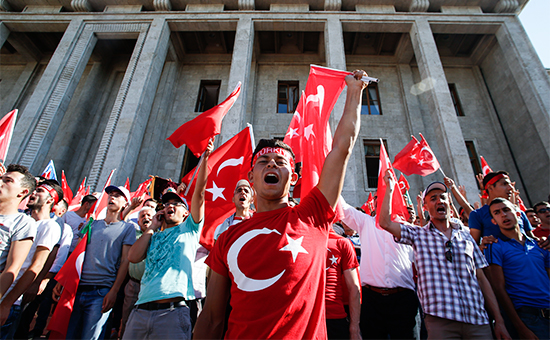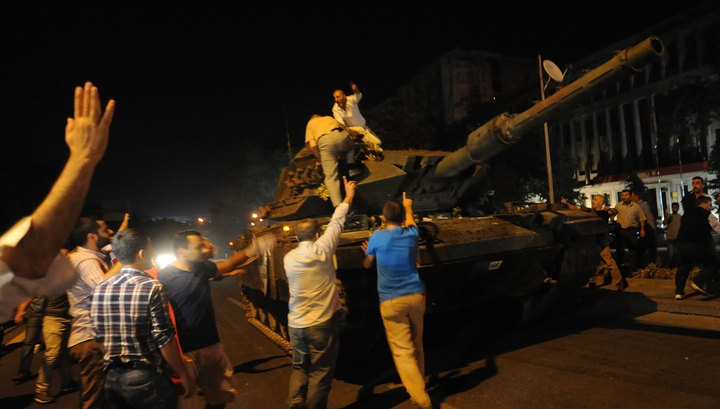The National Intelligence Organization of Turkey received data on the military coup impending on July 15 a few hours before it began. According to a report published on the website of the Turkish Armed Forces, scouts informed the General Staff about the upcoming coup. By the morning of July 16, the authorities took control of the situation and started to restore order - 7.5 thousand people were detained on suspicion of involvement in the coup, most of them are servicemen. However, 257 employees of the Prime Minister's office and 492 employees of the Religious Affairs Directorate were also dismissed from duties after the coup attempt, as well as 15,200 of Turkey's education workers have been suspended, investigations are ongoing in regard to them. In addition, the Radio and Television Supreme Council of Turkey cancelled the licenses of 24 media outlets associated with the opposition Muslim cleric Fethullah Gulen, whom Ankara accuses of organizing the coup attempt.

"Cleansings in the country are started regardless of the political preferences in the Turkish society. The day after the attempted coup about 1500 people were arrested, and not only servicemen, but lawyers, judges, representatives of civil society, public figures. Apparently, everyone who does not share the idea of a presidential form of government and the constitutional changes, which the Justice and Development Party, led by [Turkish President Recep Tayyip] Erdogan, is trying to introduce, will be declared traitors," the orientalist-turkologist, expert of the Caucasus Geopolitical Club Yuri Mavashev told Vestnik Kavkaza.
According to him, Turkey's relations with Russia will not radically change after the attempted military coup: "The only possible change is that the destabilization of the Republic of Turkey will undoubtedly lead to a powerful outflow of Russian tourists and Russian business, which hopes now that it will be possible to return to serious projects. But business may refuse to cooperate with Turkey."

Mavashev reminded that the new Turkish Prime Minister Binali Yıldırım's concept of "more friends, fewer enemies" is based on building mutually beneficial cooperation with all the players, all the neighbors of Turkey. "The last letter of the Turkish President Recep Tayyip Erdogan to the Russian President Vladimir Putin once again confirmed the intention of the Turkish leadership to improve relations with Russia. I think we should proceed from this," the expert said.






